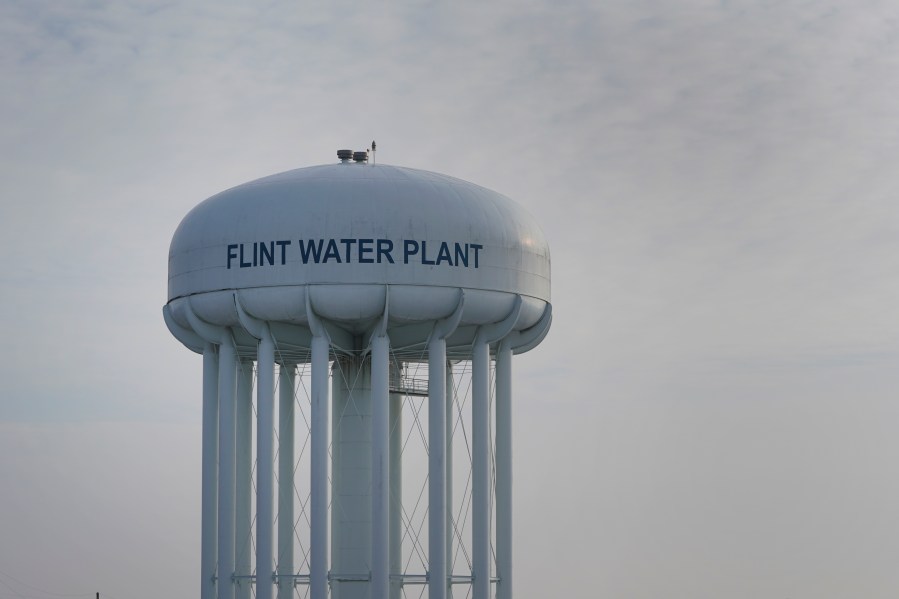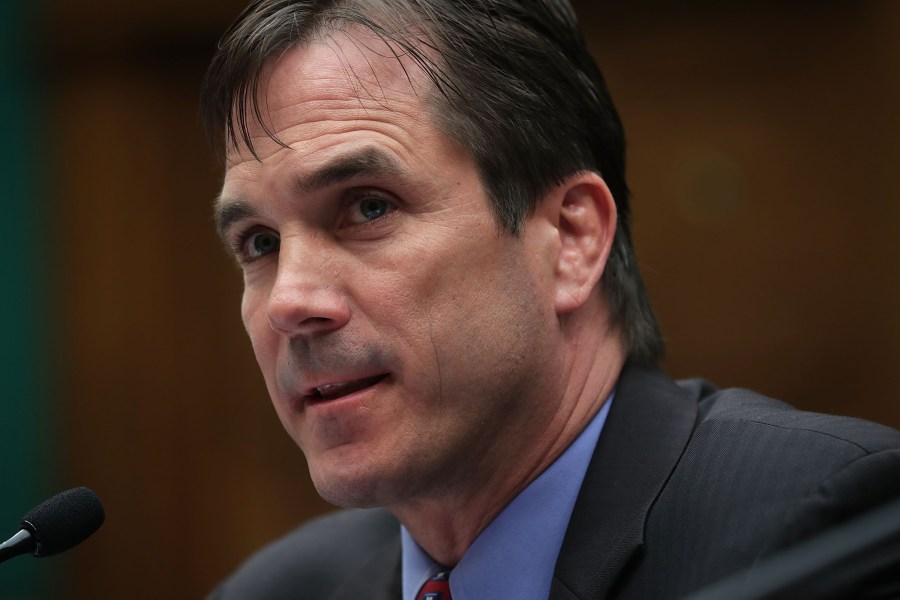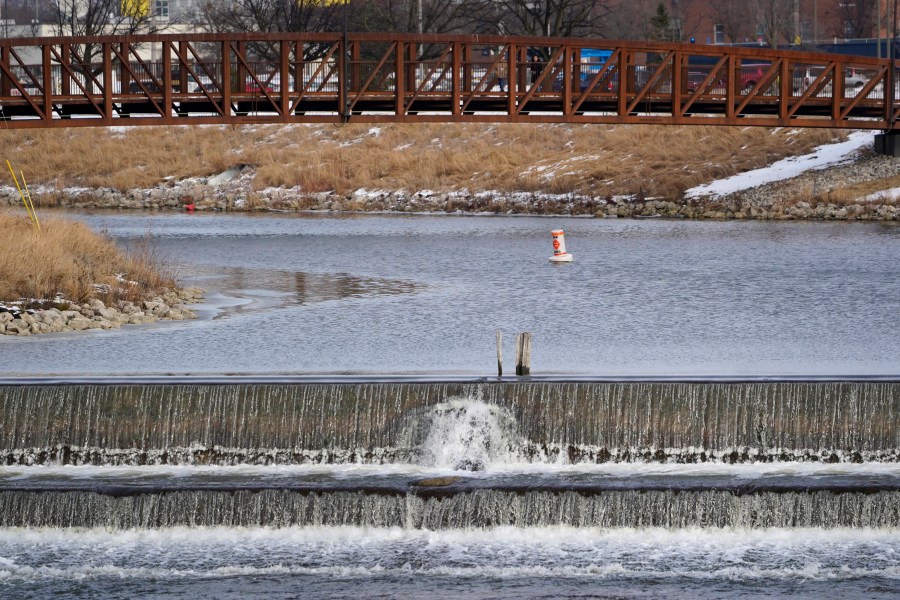Former Michigan governor, ex-health chief among 9 indicted in Flint water crisis
LANSING, Mich. (NewsNation Now) — Michigan’s former governor and former health director are among nine former officials indicted for their involvement in the Flint water crisis.
Notably, Nick Lyon, Michigan former health director was charged Thursday with involuntary manslaughter in the deaths of nine people who got Legionnaires’ disease during the crisis.
Lyon pleaded not guilty during an appearance in a Genesee County court. He worked for then-Gov. Rick Snyder, who is facing misdemeanor charges of willful neglect of duty in Flint.
Snyder and Lyon joined a parade of former state and local officials pleading not guilty in Genesee County courts. Many were former officials who worked in Snyder’s administration, which ran from 2011 to 2018.
Attorney General Dana Nessel and her prosecutors announced the charges Thursday.
“This is not some relic of the past, the people of Flint still suffer from the categorical failure of government at all levels,” said solicitor general Fadwa Hammoud.
The following charges were announced:
- Jarrod Agen, former director of communications and former chief of staff at the executive office of Gov. Rick Snyder, has been charged with one count of perjury.
- Gerald Ambrose, former city of Flint emergency manager, has been charged with four counts of misconduct in office.
- Richard Baird, former transformation manager and senior adviser at the executive office of Gov. Rick Snyder, has been charged with one count perjury, one count of official misconduct in office, one count of obstruction of justice and one count of extortion.
- Howard Croft, former director of the city of Flint department of public works, has been charged with two counts of willful neglect of duty.
- Darnell Earley, former city of Flint emergency manager, has been charged with three counts of misconduct in office.
- Nicolas Lyon, former director of Michigan department of health and human series, has been charged with nine counts of involuntary manslaughter and one count of willful neglect of duty.
- Nancy Peeler, current Early Childhood Health Section Manager at the Michigan Department of of Health and Human Services, has been charged with two counts of misconduct in office and one count of willful neglect of duty.
- Richard Snyder, former governor of Michigan, has been charged with two counts of willful neglect of duty.
- Eden Wells, former chief medical executive at the Michigan department of health and human services, has been charged with nine counts of involuntary manslaughter, two counts of misconduct in office and one count of willful neglect of duty.
In all 42 counts related to the crisis were announced. All defendants turned themselves in and were arraigned Thursday.
“There are no velvet ropes in our criminal justice system,” Hammoud said. “Nobody — no matter how powerful or well-connected — is above accountability when they commit a crime.”
The indictment filed by the attorney general’s office is groundbreaking: No governor or former governor in Michigan’s 184-year history had been charged with crimes related to their time in that office, according to the state archivist.
All charges stemmed from evidence presented to Judge David Newblatt, who served as a secret one-person grand jury. Hammoud declined to offer details during a news conference but said Snyder had “failed to protect the health and safety” of Flint’s nearly 100,000 residents.
Flint was in chronic financial trouble in 2014 when a Snyder-appointed emergency manager, Earley, who was running the majority Black city carried out a money-saving decision to use the Flint River for water while a regional pipeline from Lake Huron was under construction. The corrosive water, however, wasn’t treated properly and released lead from old plumbing into homes.
State and some city officials insisted the water was safe to use — until a group of doctors in September 2015 urged Flint to change its water source after finding high levels of lead in children’s blood.
“I’m sorry and I will fix it,” Snyder promised during his 2016 State of the State speech.
The water, it turned out, had not been treated to reduce corrosion — causing the toxic metal to leach from old pipes and spoil the distribution system used by nearly 100,000 residents. The water also was blamed for a deadly outbreak of Legionnaires’ disease in the Flint area. Authorities counted at least 90 cases of Legionnaires’ disease in Genesee County, including 12 deaths.
“I literally could have cried,” said Flint mother Ariana Hawk after learning Tuesday that former Michigan Gov. Rick Snyder and others in his administration were expected to be charged in a water crisis blamed with causing learning disabilities in scores of children and other medical problems among adults.
Hawk’s son, Sincere Smith, was 2 years old when she noticed something wasn’t right with the family’s tap water. Sometimes the water they drank and used for cooking and bathing was discolored. More concerning was when it gushed out brown.
Rashes had started to spread over her son’s body. He became inconsolable when she bathed him. The boy’s pediatrician pointed to the city’s water as the cause.
Flint has since returned to water from Detroit’s system and has replaced more than 9,700 lead service lines, but scars remain — some visible, others psychological.
For Sincere, now 7, and his siblings, water from taps can elicit worry.
While visiting their grandmother’s home in Florida, Sincere was hesitant about the water, Hawk told The Associated Press.
“I told him ‘It’s not Flint. Y’all can drink it,’” Hawk said. “But they’ve been normalized to drinking bottled water because they can’t drink our water. Flint kids are traumatized.”
Snyder, who left office in 2018, was not initially charged, though others were. But a new probe was started in 2019, with all charges dropped against eight people. Prosecutors working under a new state attorney general said all available evidence was not pursued by the previous team of prosecutors.
Separately, the state, Flint, a hospital and an engineering firm have agreed to a $641 million settlement with residents over the water crisis, with $600 million coming from Michigan. A judge said she hopes to decide by Jan. 21 whether to grant preliminary approval. Other lawsuits, including one against the U.S. Environmental Protection Agency, are pending.
Tune into NewsNation on WGN America at 8/7c tonight for a full report.















